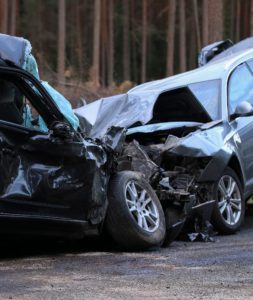Florida Appellate Court Case Reviews Default Judgment in Uninsured Car Accident Case

In Florida uninsured car accident cases, the injured person typically seeks payment from his or her own insurance company to cover medical bills and repair costs for the affected vehicle. After paying what’s been agreed to in the insurance contract, the insurance company will often seek repayment from the uninsured party or parties responsible for the accident. The Fourth District Court of Appeal issued a decision in Kotlyar v. Metropolitan Casualty Ins. Co. (Nos. 4D14-1878 & 4D14-4377), which reviewed whether or not the default judgment entered against the owner of a vehicle was valid, when the driver’s negligence had not been fully adjudicated.
After the accident, the injured woman received compensation from her insurance company for $50,000.00 toward her physical ailments, including the injury itself, pain and suffering, mental anguish, and loss of wages and earning capacity. She also received a payment of $3,389.85 from the insurance company after incurring the deductible cost of $1,400.00. The injured woman’s insurance company sought damages from the driver and the owner of the vehicle for $54,789.85.
The driver, after service of the complaint, filed an answer denying liability and responsibility for damages. The owner, however, did not, and a default judgment was entered against him. The insurance company argued that the damages were “liquidated in nature” and that they were also entitled to a final default judgment, with the court granting payment of the $54,789.85. Unliquidated damages are damages that cannot be determined from an agreement between the parties, mathematical calculation, or application of any definite rule of law. Liquidated damages are considered to be more certain, removing the need for further litigation. The owner later filed a motion to vacate the default judgment, arguing that the damages were unliquidated and that the law afforded him an opportunity to be heard.
The district court of appeals agreed with the owner that the damages were not liquidated. While the court acknowledged there was a Fifth District appellate decision that lined up with the facts and circumstances of this case before them, they pointed to several decisions related to this topic from other districts that found against the insurance company. Case law formed within the last 10 years has established that a default judgment terminates the right to defend against a lawsuit, except for the amount of unliquidated damages. The insurance company cannot exercise greater rights than the subrogee, or the injured party, and therefore it cannot make unliquidated damages liquidated through the pleadings.
The Fourth District held that the owner of the car did admit to liability by defaulting on the judgment, but he was entitled to the hearing about the amount of unliquidated damages. The court specified that they did not hold that the owner can participate as a party or defend against the insurance company’s claim against his wife. Koltyar illustrates some of the difficulties an injured party may face when pursuing damages from an uninsured at-fault party. While in this case the insurance company subrogated the claim against the at-fault party, an injured party could have filed a personal injury lawsuit against the uninsured party.
The Florida car accident attorneys at Weston & Pape can help you try to maximize your damages from insurance companies and at-fault parties, whether they are insured, underinsured, or uninsured. For a free, confidential consultation, call our office today at 772-266-5555 or 561-299-3999.
More Blog Posts:
Florida District Appellate Decision Allows Woman Injured by Slip and Fall to Pursue Negligence Action Against County, South Florida Injury Lawyer Blog, April 19, 2016
Florida District Court of Appeal Reviews Grocery Store Slip-and-Fall Case, South Florida Injury Lawyer Blog, March 9, 2016

 Call Us Today
- It's Free
Call Us Today
- It's Free